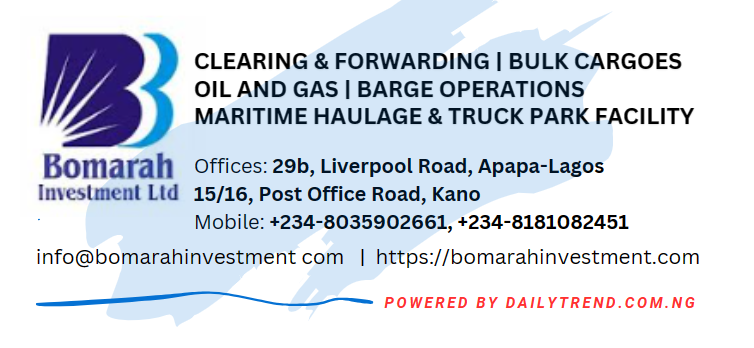Importers To Pay Additional N6,000 On Vehicles, As VREG Kickstarts At Tin Can Port Today

By DAPO OLAWUNI
Importers of vehicles into Nigeria are expected to pay more money in clearing their cargoes from the Port, thanks to the National Vehicle Registration Policy (VREG) of the Federal Ministry of Finance which its pilot stage Kickstarts at the Tin Can Island Port today, Monday 4th, October, 2021.
Investigations by DAILY TREND NEWS revealed that the fees payable on VREG fee is not fixed, it is açcording to the capacity of vehicles, however, the fees starts from N6,000.
When the VREG was launched two months ago, Minister of finance, budget and national planning, Mrs Zainab Ahmed said the creation of this registry became necessary to tackle the menace of customs duty evasion, vehicle theft, vehicle-related crimes and ineffective vehicle insurance coverage, among others.
Importers are however lamenting on the amount payable on the VREG, saying that the N6,000 fees attached is too much to bear, and that it would further lead to high cost of cargo clearance.
An importer, Emmanuel Allwell told our correspondent at the Tin Can Port last week that the Federal Government plans to rake billions of Naira from the VREG and that the N6,000 is high, compared to the value VREG is adding.
Tin Can Island Port houses the biggest vehicle importing terminals in Nigeria, hence the success of VREG at Tin Can Port would to a large extent determine how it would succeed at some of the other ports.
In a chat with out correspondent last week, image maker of the Nigeria Customs Service at Tin Can Island Command, Mr Uche Ejesieme listed some of the benefits of the VREG to the customs service, saying that it would put an end to controversies over valuation of vehicles.
He however said that with the deployment of the VREG, the command envisages oppositions, but that all the Deputy Comptrollers in charge of vehicle terminals have been detailed on what to expect and how to handle the situation.
Speaking, Mr Ejesieme said “The VREG is simple, it is a repository of all vehicles, so that at the end of the day, all critical stakeholders including customs would have access to every information about the vehicle, particularly for value purposes, and for statistics purposes”
“From the traders zone, before you can capture a vehicle from the customs zone, you supposed to first go to the VREG platform and apply through the platform, get the certification, you would now use the certificate number to apply to the customs zone to capture your vehicle”
“It is configured in such a way that once you input the VIN number, the actual duty payable on the vehicle would come out”
“Fortunately, this is part of what the service is doing to ensure that we maximise some of our ICT Trade Facilitation tools and also for national security.
“The deployment is coming at a time that we really need it to block avenues. We still believe that with the deployment of VREG, we are going to have opposition”
The customs spokesman stated that training sessions on the operations of VREG had commenced across all six geopolitical zones, and now it has gotten to a phase of deployment.
Recall that the pilot phase was at recently flagged off at KLT Terminal before it now moves to Tin Can Island Port.
Our correspondent reports that Tin Can Port is more important because it has more complicated transactions and largest car volumes.
Speaking further, the customs image maker said the command had held meeting with all Deputy Comptrollers in charge of vehicle terminals in order to prepare their minds on what to expect and to do everything to ensure the project succeeds.
He said resource persons were sent from the Ministry of Finace to train the stakeholders. The five freight forwarding associations were asked to sent representatives for the training.
The VREG is supposed to have been deployed on 27th, but because customs needed to bring the stakeholders up to speed, it would now commence today.
Minister of finance, budget and national planning, Zainab Ahmed, on Thursday, said the pilot phase of the new National Vehicle Registry (VERG) automated gateway portal has begun in Lagos state, aimed at increasing national revenue, curb smuggling and other criminal activities.
The minister explained that VERG is the centralized database for all vehicles in Nigeria using their unique Vehicle Identification Numbers (VIN), which stores detailed vehicular information such as specifications, ownership, and history of each vehicle in Nigeria.







